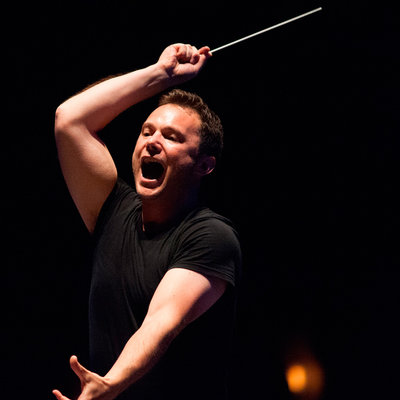
More than a decade ago, in a speech at the Oregon Bach Festival, former New York Times classical music critic John Rockwell suggested that OBF bring in historically informed ensembles so audiences could hear how contemporary authentic-practice Baroque performances differed from then-OBF music director Helmuth Rilling’s “1950s and ’60s interpretations.”
Rockwell merely pointed out what most Baroque music aficionados already knew: The Oregon Bach Festival had fallen woefully behind the times. After two generations of exciting discoveries by scholar-performers that radically changed our notion of how the music originally sounded, OBF still clung to anachronistic modern instruments, over-large orchestral and choral forces and compromised modern tunings that made originally lithe, transparent music sound bland and bloated.
Times have changed. This year, the Oregon Bach Festival leaps from the rearguard to the vanguard of historically informed performance (HIP) with the advent of its Berwick Academy for Historical Performance, a new educational program for advanced students and young professional musicians from all over North America.
“The musicians who are selected to join the academy every year all specialize in the performance of music from the Baroque, Classical and Romantic periods on old instruments, utilizing playing techniques and performance styles inspired by what we know of past traditions,” OBF Artistic Director Matthew Halls writes.
After a three-day intensive course led by a faculty of renowned period-practice performers (including Masaaki Suzuki, founder and director of the Bach Collegium Japan, and Monica Huggett, who ran the Juilliard historical performance program and leads Portland Baroque Orchestra), Berwick students perform 18th- and 19th-century music alongside the faculty (in Haydn’s Classical-era oratorio The Creation) and on their own, in a concerts of early Romantic music by Beethoven and Baroque music by Bach.
UO alums Andy and Phyzz Berwick funded the new academy (including free tuition) as well as the festival’s (and the academy’s) new headquarters building, which should be built in time for next year’s festival.
The new program differs from those at a few other colleges scattered across the country, Halls says, in that it strives to “bring together musicians from all those centers who might not otherwise meet, centralize the study of music from Baroque and later periods and cultivate a sense of networking,” he explains. “If you put like-minded, highly talented musicians in a room together long enough, their entrepreneurial spirit kicks in. They start making plans, generating new projects, forming groups.”
Halls notes that “a lot of the European ensembles were formed under the European Union Baroque Orchestra,” which transformed Halls’ own career as a historically informed musician and provided him a model for the Berwick Academy.
By cultivating an appreciation for historical styles and instruments in the upcoming generations of classical musicians, Halls hopes the academy can ultimately help propagate in this country the wonderful profusion of early music ensembles that exist throughout Europe — and to influence even modern instrument performances.
“What you find now if you walk in as guest conductor in Europe, at least half your orchestra have a sense of historical style,” Halls says, particularly younger players who grew up performing in those styles. “How do you replicate that on modern instruments? It’s a much broader thing — it’s not just about the hardware,” he adds.
“When historical performance becomes more respected and valued that has broader effects on the whole classical music scene,” Halls says. It’s the reverse of the festival’s pre-Halls approach: historical styles positively informing modern performance, instead of the latter anachronistically deforming the former.
If Halls can do that in what used to be a bastion of musical conservatism in Eugene, who knows? He may succeed in making all of American classical music HIP.